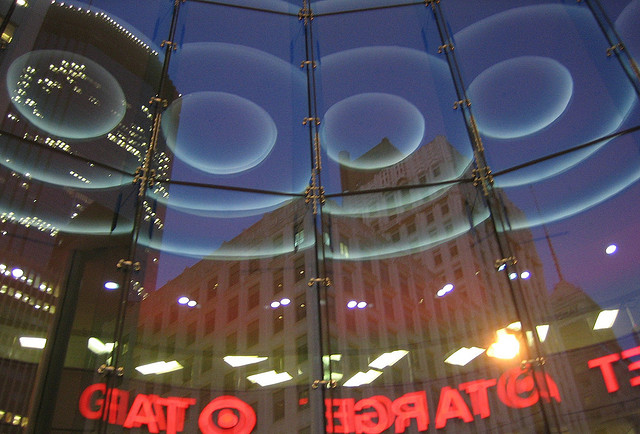Target chief executive Gregg Steinhafel said he knows Target shoppers are frustrated and confused by the theft of their personal data, and “they have every right to be.”
Speaking in his first interview since the data breach was discovered a month ago, Steinhafel told CNBC that he’s “still shaken by it” and vowed to regain the trust of its customers.
Target on Monday also ran full-page ads in major newspapers nationwide, including the Pioneer Press. In a signed statement, Steinhafel said: “It is our responsibility to protect your information when you shop with us. We didn’t live up to that responsibility, and I am truly sorry.”
The Minneapolis-based discounter Monday unveiled two additional initiatives: First, a coalition to help educate the public on the dangers of consumer scams. Second, pushing retailers, regulators and others to adopt “newer, more secure technologies that protect consumers.”
During the past month, Steinhafel has kept a low public profile — making no public appearances and giving no interviews — during the worst data breach in U.S. history. That provoked some criticism, wondering why a CEO/chairman who earns $23 million a year wasn’t stepping forward to talk to customers, beyond posting video clips on the company blog.
Target initially said private data from up to 40 million credit and debit cards was stolen from holiday shoppers at its stores. On Friday, Target added that thieves also stole the contact information of up to 70 million additional shoppers.
Steinhafel said the initial data breach was first discovered Dec. 15, but Target didn’t disclose it until four days later, when word of the breach had begun to go public.
Steinhafel said on CNBC that the delay was needed to secure Target’s systems, launch the forensics works, prepare for the firestorm and then notify customers. From his perspective, Target was operating at lightning speed, even though some critics asked why it took four days to tell shoppers their card data had been stolen.
On Dec. 15, “Our No. 1 priority was … making our environment safe and secure,” Steinhafel said on CNBC. “By 6 o’clock at night, our environment was safe and secure. We eliminated the malware in the access point; we were very confident that coming into Monday, guests could come to Target and shop with confidence and no risk.”
But he knows customers are angry, frustrated, worried and annoyed. One way he knows: He’s read all of their emails.
“No one screens my email,” he told CNBC. “So I have read every single email that has come to me.”
Those emails “run the gamut of emotions,” he said. Some have been supportive of Target. Others included what Steinhafel called “fairly poorly chosen words to describe Target and myself.”
Steinhafel declined to delve into some areas, saying, “We are in the middle of a criminal investigation as you can appreciate and we can only share so much.”
But Monday, the Target CEO borrowed his company’s “Expect More, Pay Less” slogan to communicate with its customers.
“You expect more from us and deserve better,” he wrote in Target’s full-page ad.

